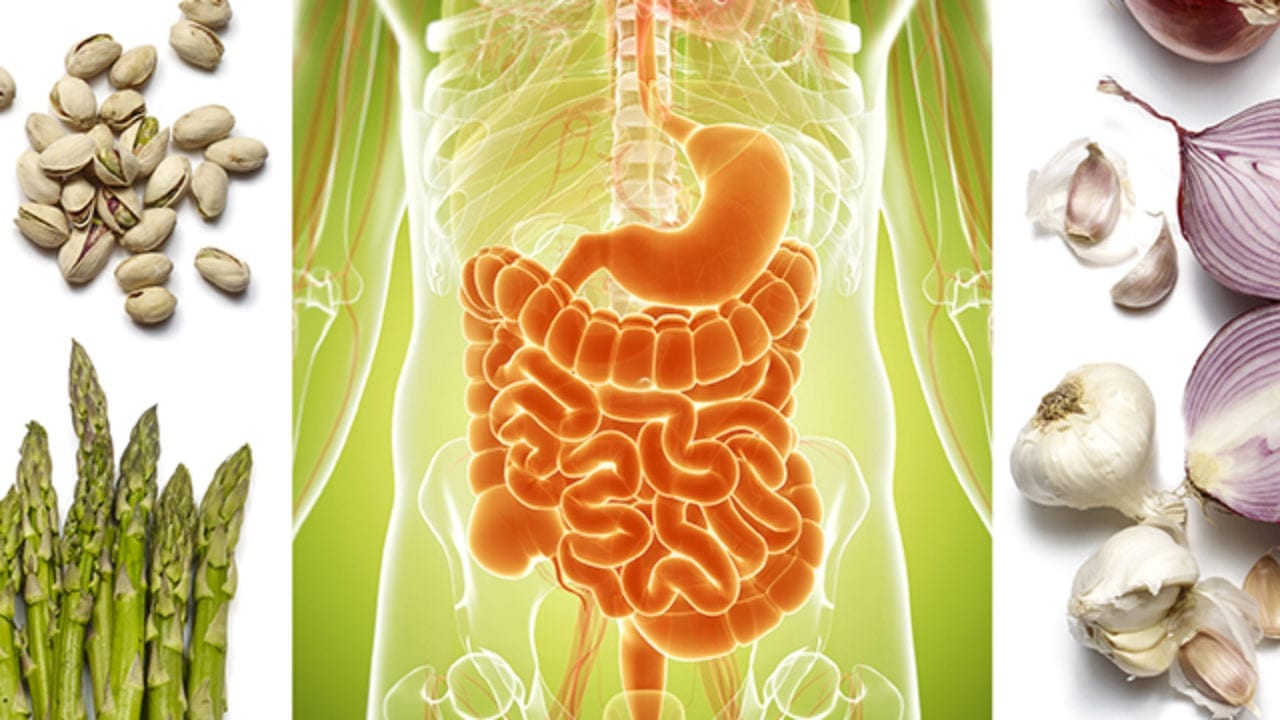Have you ever heard the phrase “you are what you eat?” When talking about probiotics and prebiotics, that can be amended to “you are what you feed the trillions of little critters living in your gut!”
The lining of your gut, just like pretty much every part of your body, is home to a vast number of microscopic creatures, mostly bacteria. These little critters help keep you healthy via a micro-ecosystem called the microbiome. Even though you probably don’t give your microbiome much thought, it plays a critical role in your health. What you feed your microbiota—the types of bacteria that live in your gut—can improve the health of your microbiome. And the healthier it is, the healthier you are.
Prebiotics Explained
The foods that nourish your microbiota are known as prebiotics and they consist of nondigestible fiber. This fiber acts like fertilizer that stimulates the growth of healthy bacteria in the gut. Prebiotics are found in many fruits and veggies, especially those that contain resistant starch. Your body can’t digest prebiotics so they pass through the digestive system to become food for the bacteria and other microbes in your gut.
Good sources of prebiotics include:
- Apples
- Artichokes
- Bananas
- Garlic
- Oats
- Onions
- Pistachios
- Tomatoes
- Whole Wheat
Prebiotics can also be found in supplement form.
In addition to feeding your good gut bacteria, prebiotics boost the absorption of calcium, help regulate blood sugar, and help to keep the cells that line the gut healthy.1
How Probiotics Are Different
Probiotics are different than prebiotics in that they contain live organisms, usually specific strains of bacteria that directly add to the population of healthy microbes in your gut. Probiotics can also help ease some common health issues like diarrhea, IBS, urinary tract infections, and can even boost your immune system.2 Like prebiotics, you can find probiotics in food and also in dietary supplements. Probiotic-rich foods include yogurt, kombucha, kimchi, sauerkraut, and other fermented foods.
Now, What Are Synbiotics?
One health buzzword you might start hearing about in 2021 is something called “synbiotics.” Synbiotics are supplements that contain probiotics and prebiotics. Some researchers say that probiotics can encounter “survival difficulties” while passing through the intestinal tract, and sometimes will not make it all the way to the gut. Adding prebiotics to a probiotic supplement can help feed the probiotics and help to ensure that the digestion-friendly microorganisms thrive once they arrive in the gut. In a nutshell, combining the right prebiotic with the optimal probiotic strains of bacteria creates a synergy that improves the survival and growth of the beneficial bacteria in your microbiome. Because probiotics need prebiotics to survive, it’s important to have the right amount of both.
So make gut health a priority in 2021 and consider changing up your diet to consume both probiotic- and prebiotic-rich foods. On the flip side, you can consider adding a probiotic, prebiotic, or even a synbiotic supplement to your routine. When considering taking a supplement though, always talk to your primary care physician first.
References
References
- Mahboobi S, Rahimi F, Jafarnejad S. Effects of prebiotic and synbiotic supplementation on glycaemia and lipid profile in type 2 diabetes: a meta-analysis of randomized controlled trials. Advanced Pharmaceutical Bulletin. 2018; 8(4): 565-574.
- Zhang H, Yeh C, Jin Z, et al. Prospective study of prebiotic supplementation results in immune stimulation and improvement of upper respiratory infection rate. Synthetic and Systems Biotechnology. 2018; 3(2): 113-120.
This article is for informational purposes only. This article is not, nor is it intended to be, a substitute for professional medical advice, diagnosis, or treatment and should never be relied upon for specific medical advice.

Share this Post